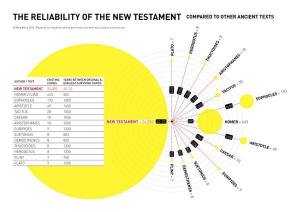This post is specifically for my church family as we read through the Bible together this fall. Sometimes it has felt as though we are drinking water through a fire hydrant! Reading at this pace is a challenge and it often feels impossible to stop and meditate. But one advantage is to be able to see recurring themes and points of connection more clearly. If you see a prophecy in Deuteronomy, and its fulfillment comes at the end of 2 Samuel, you will recognize it more easily if the readings are only days or weeks apart rather than months or years! The first five books of the Bible are sometimes known as the “Books of the Law.” Depending on your point of view, law can be tedious and boring in modern and ancient literature alike. Leviticus is a challenging book! The pace of the narration grinds to a halt as God continues his dictation of laws to his covenant people, gathered at the foot of Mount Sinai. If you aren’t bored to tears by the slowed pace, you may be shocked by the seemingly harsh judgments against those who might break God’s law. I wanted to post this note in hopes that it would remind us of truths that God has revealed in other parts of the Bible. That way we are practicing good interpretation; we will use scripture to interpret scripture and let the Bible speak for itself. 
Types of laws: Throughout the first five books of the Bible, God gives three general types of laws: Civil, Moral and Ceremonial. You can see examples of each in Leviticus. For an example of a civil law, see chapters 13 and 14 which outline laws of hygiene. You can find an example of moral law in chapters 18 and 19. Some of the ceremonial laws are given in 23 and 24. Why is this part of the Christian Bible? Why should we read it?
2 Timothy 3:16-17 says “All Scripture is inspired by God and is profitable for teaching, for rebuking, for correcting, for training in righteousness, so that the man of God may be complete, equipped for every good work.” In light of this New Testament declaration (which concerns the Old Testament and New Testament alike), we know that God would have us to gain something from Leviticus. But what?? What does the grain offering prescribed to the ancient Hebrews at the foot of Mount Sinai have to do with Jesus’ church after the cross?? Aren’t we free from the law?
Yes, we are free from the Law. The entire book of Galatians, Hebrews and long portions of Romans are dedicated to describing, at great length, how and why we are freed from the Old Testament law. But there are universal truths behind each law that are useful to understand. Some are easier than others to discern. What do we gain from reading them? A deeper understanding of God’s relationship with his covenant people and his design for human flourishing. For example, the theme of the entire book of Leviticus is “holiness”. The word “holy” is used in Leviticus 76 times in 27 chapters. (A quick comparison with the other Books of the law: in Genesis, the word “holy” is used 1 time. Exodus: 46 times, Numbers: 35 times, Deuteronomy: 11 times.) We aren’t bound by the laws in Leviticus, but we can see that the universal principle of “holiness” is terribly important to God.
This becomes apparent when we consider the nature of the sacrifices. Many types of sacrifices for different occasions are outlined. How many of them have something to do with atoning for sin or ceremonial cleansing? All except for one: the fellowship offering described in chapter 3. What can we learn from this? For thousands of years God has been in the business of making a way for us to have fellowship with him! There is even a sacrifice prescribed for unintentional sin! God is so holy and pure he cannot dismiss sin with a wink, yet he still desired relationship with his morally bankrupt people. The sacrifices and some of the rituals clearly foreshadow Jesus’ final sacrifice at the cross as well.
What about the human rights problems in Leviticus? Capital punishment is an activity that some people today find disgusting. Most people today are sickened by slavery and many actively fight against human trafficking. How come we see these two activities condoned in Leviticus? Isn’t this problematic for the Christian faith?
Yes. Enemies of the Christian and Jewish faiths, many of them under the umbrella of “progressivism” use passages such as Leviticus 18 and 19 as leverage for their anti-religion agenda. How can we take the Bible seriously when it condones slavery? Can we really believe that the God who allowed people to sell their children and execute people by stoning and burning is the same God who sent his son Jesus to teach love and forgiveness? Haven’t we as the human race moved past such draconian, stone-age practices?
Paul Copan, in his Book “Is God a Moral Monster?: Making Sense of the Old Testament God” answers these and other difficult questions with scholarly expertise. You can purchase it by following this link: http://www.amazon.com/God-Moral-Monster-Making-Testament/dp/0801072751/ref=sr_1_1?s=books&ie=UTF8&qid=1412456629&sr=1-1&keywords=paul+copan+is+god+a+moral+monster (I also have a Kindle version if you wish to borrow it.) If you don’t find enough depth in this post, I highly recommend Copan’s work.
For now, let’s go back to what we already know about what God has said in scripture:
1. God created everything. (Genesis 1:1). As such, he is the creator of absolute truth, morality and humankind. He is the author of right and wrong, which stands independent of the changing winds of cultural taste. He is the sole owner of every human being, and apparently feels within his rights to destroy every last one of us if he so chooses (remember the flood! Genesis 6 – 9). By contrast, our cultural preferences and legal systems are man-made, temporary and subject to change with the new moon.

2. The form of slavery in the Old Testament was not the same type of slavery we normally think of in our culture today. With the abolition of slavery less than 200 years behind us, we naturally revert back to a despicable form of slavery, which was permanent, degrading and hopeless. By contrast, Hebrew slavery was temporary, compassionate and hopeful, as seen in Exodus 21:2 and Leviticus 25:39-46. What about the foreigners that they enslaved? They were likewise to be treated with compassion, as seen in Exodus 21:5, where slaves had a legal option to stay with their masters if they chose. Slaves were allowed to own their own property, and potentially to purchase their own freedom.
Does that make sense of Exodus 21:20-21? Apparently slave-owners could beat their slaves savagely and be free of legal wrongdoing. If you are like me, you will find it hard to have a warm fuzzy about that law. But consider again that we are judging from within our own cultural context into a culture that had only just been freed from hundreds of years of slavery in Egypt. Beatings were commonplace. Moses, their leader chosen by God himself had personally killed a man with his own hands! The ultimate resolution of this problem is that it is God’s word that prevails…not our personal preference.
Does that mean that we should re-institute slavery as a modern civil structure? No way! As New Testament followers of Jesus, there are no second class citizens, as we see in Ephesians 2:11-22 and Galatians 3:28. Paul also encouraged slaves to purchase their freedom if they were able (1 Corinthians 7:21).
3. What about Capital Punishment? Sexual deviants, blasphemers, and witches were equally condemned to public execution, usually by stoning, sometimes by burning. What are we to make of this? Can God still be good and order the death of an adulterer? By today’s standards, perhaps half of our population would be condemned!
In order to gain some perspective and clarity, let’s look at three priorities that God has clearly demonstrated: His own reputation, the moral hygiene of his covenant people, and the natural order.
Priority #1: God’s reputation! As owner of all of humanity, God is concerned that his people know Him as He is. Knowing who God is and what He is like is an essential part of human flourishing. As such, when his name and reputation are slandered, or anything that lessens his greatness in the eyes of his people was subject to swift and decisive correction! (Leviticus 10:1-3 and 24:10-23). Ouch! Can we reconcile this with the God we see in the New Testament? Check out Acts 5:1-10. Ananias and his wife Sapphira lied to God and were instantly killed by the Holy Spirit. Can you see the parallel? In each case, a covenant had only just recently begun. In each case, someone tested the author of the covenant; God. His reputation was at stake! These were precedent setting events. God had the obligation to maintain his reputation, even at the cost of human life (which he owns anyway.)
Priority #2: the Moral Hygiene of God’s People! Many of the laws we see in the Old Testament seem puzzling: Exodus 34:26–don’t boil a young goat in its mother’s milk. Leviticus 19:27–don’t trim your hair or beard. What can we make of these strange commands? Look at the bigger picture: God was removing Israel from Egypt (a pagan nation) and bringing them to the land of Canaan (a pagan territory). The surrounding cultures were rife with all types of witchcraft, demon worship, child-sacrifice, ritual prostitution and nature worship. God’s priority of keeping his people separate from those influences comes out in many of his laws. Why? It goes back to God’s reputation (which the pagan worldviews undercut) and human flourishing (which pagan practices stunt). God was so concerned about the cultural purity of his people that he sometimes used capital punishment as a deterrent. Is there a modern-day application for that universal principle? You tell me…

Priority #3: Rebellion Against the Natural Order! Leviticus 18:21, You are not to make any of your children pass through the fire to Molech. Do not profane the name of your God.; I am Yahweh.” Leviticus 18:22, “You are not to sleep with a man as with a woman; it is detestable.” Leviticus 18:23, “You are not to have sexual intercourse with any animal, defiling yourself with it.” A few of the Old Testament Laws prohibit activities that may have been pagan in practice, but also go completely opposite of natural design. As such, they are a rebellion against the one who designed them. Again, God is concerned about His reputation, and the moral hygiene of His people. The category of sin in those verses bleeds into the other priorities already mentioned, as we see in the verses which follow: “Do not defile yourselves by any of these practices, for the nations I am driving out before you have defiled themselves by all these things…I am Yahweh your God.” (Leviticus 18:24, 30).
*A quick word on homosexuality and the church today* This is a front-line culture war issue. The church has a bad reputation in the world’s eyes because many denominations have maintained a biblical stance on homosexuality, which stands in contrast to mainstream culture. Open Door Church will stand on the Bible, in spite of cultural pressures. However, we will strive to keep homosexuality in perspective: it is not the only sin. It is not the worst sin. We are committed to being truthful about sin of all types, and learning to love sinners of all types. Expect us to do both less than perfectly.
Posted in
Apologetics,
Church Culture,
Theology,
Worship and tagged
Bible,
Capital Punishment,
Capital Punishment in the BIble,
Christian,
coffee shop hermeneutics,
commandments,
Human Rights,
Leviticus,
Old Testament Law,
Progressivism,
Slavery,
Slavery in the Bible |





